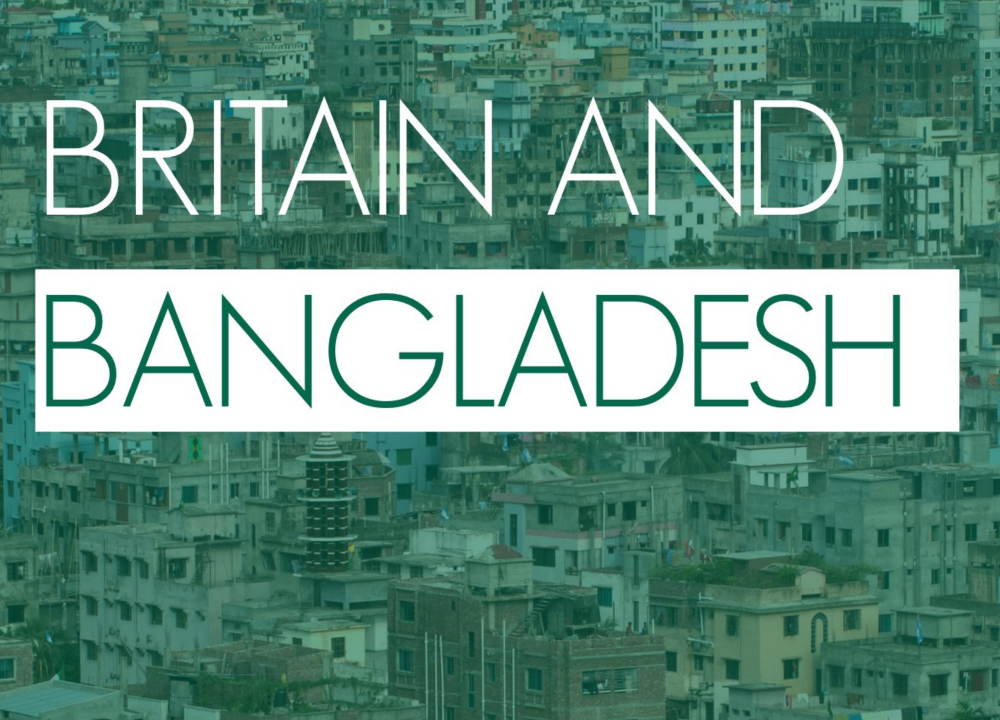A new relationship prioritising human rights
The Labour Campaign for Human Rights argues that human rights should be at the forefront of the United Kingdom’s relationship with Bangladesh.

At the Labour Campaign for Human Rights (LCHR) we are committed to ensuring that human rights remain at the heart of the Labour Party’s policy in the United Kingdom. We think that the rollback of democracy and undermining of human rights by Sheikh Hasina’s ruling Awami League party should matter to the British government. As a long-term ally, Britain is Bangladesh’s third-largest export destination, the fourth-largest source of remittances, and the third-largest foreign investor.
We launched our latest briefing at the Houses of Parliament in London on February 4th which documents how Britain’s biggest retailers have “chased the cheap needle around the planet”, importing low-cost clothing in vast quantities from countries including Bangladesh in the pursuit of “fast fashion”. This desire for cut-price clothing products has come at the expense of the rights of those who make them.
Speaking at the event, Rumana Hashem, a Bangladeshi-born activist and political sociologist at the Department of Politics and International Studies at the University of Warwick, argued that human rights abuses must be addressed at a grassroots level, not just as “a top-down intellectualised solution to a hugely diverse country from a British perspective.”
In 2013, the infamous collapse of a Dhaka garment factory building pushed the issue of workers’ rights onto the British news agenda and put pressure on Western brands to do more to stamp out modern slavery and audit their supply chains. The uproar that followed the collapse prompted about 190 European brands — including Marks and Spencer, H&M, Tesco and Carrefour — to form the Accord on Fire and Building Safety in Bangladesh.
Seven years later, the safety of workers in the country still hangs in the balance, despite some progress being made. Whether Bangladesh is able, or willing, to enforce the new standards at a time when unions are being stifled and wages remain among the lowest in the world will decide the real legacy of Rana Plaza.
Although Murad Qureshi, a former member of the Greater London Authority, argued that the rights of trade unions in Bangladesh have a long history, they are just not used enough.
Bangladesh is one of the top recipients of UK official development assistance. In September 2019, the UK government made available an additional £87 million for sustaining the Rohingya refugee operation in Cox’s Bazar, taking the total since the start of the crisis in August 2017 to £226 million.
However, the longer the Rohingya crisis remains without a suitable diplomatic and political solution, which includes citizenship for the Rohingya in Myanmar and accountability of those who perpetrated the genocide in Rakhine, the more likely human rights abuses will occur on Bangladeshi soil. Their rights are further reduced by the failure of the Bangladesh government to recognise the Rohingya as refugees in the country.
Despite Bangladesh being on the list of the UK Foreign Office’s human rights priority countries, the UK remains a major supplier to the country’s military, with which it has a longstanding relationship. Despite the reported political suppression over the past decade, UK arms sales to the country doubled under Theresa May’s Conservative government.
In addition, with two-thirds of the country less than five metres above sea level, Bangladesh is on the front line of climate change, and a most basic human right of Bangladeshis, to live safe from disaster, is no longer guaranteed. Hundreds of thousands of people have already been displaced, and thousands have been killed by natural disasters and extreme weather events. Our research shows that such events are likely to get worse in the years to come.
Successive Conservative and Labour governments have paid little attention to political developments in Bangladesh. Consequently, it seems highly unlikely that Boris Johnson’s new government will expend any political capital on the deteriorating human rights situation in the country.
Halima Begum, a former First Secretary and Education Adviser at DFID Bangladesh, explained: “There are policies in place to protect human rights, but what isn’t there is implementation.”
At a time when democracy across much of the world is under siege, the Labour Party remains committed to a human rights-based foreign policy, where principles come before trade deals, arms sales, and cheap clothes.
At the LCHR we will continue to ensure that human rights remain at the heart of Labour Party policy. The UK government has many tools at its disposal — such as ensuring that workers’ rights are protected in trade arrangements; adopting a more rigorous and transparent system of arms export licensing; and, pushing for a thorough investigation into allegations of violence against the Rohingya in Myanmar.
Bangladesh has previously been identified as a priority country with which the UK should agree a post-Brexit trade deal, but no agreement will be credible, unless human rights are at the forefront of any future trading relationship.●
Stephen Delahunty is a London based journalist and member of the Labour Campaign for Human Rights.